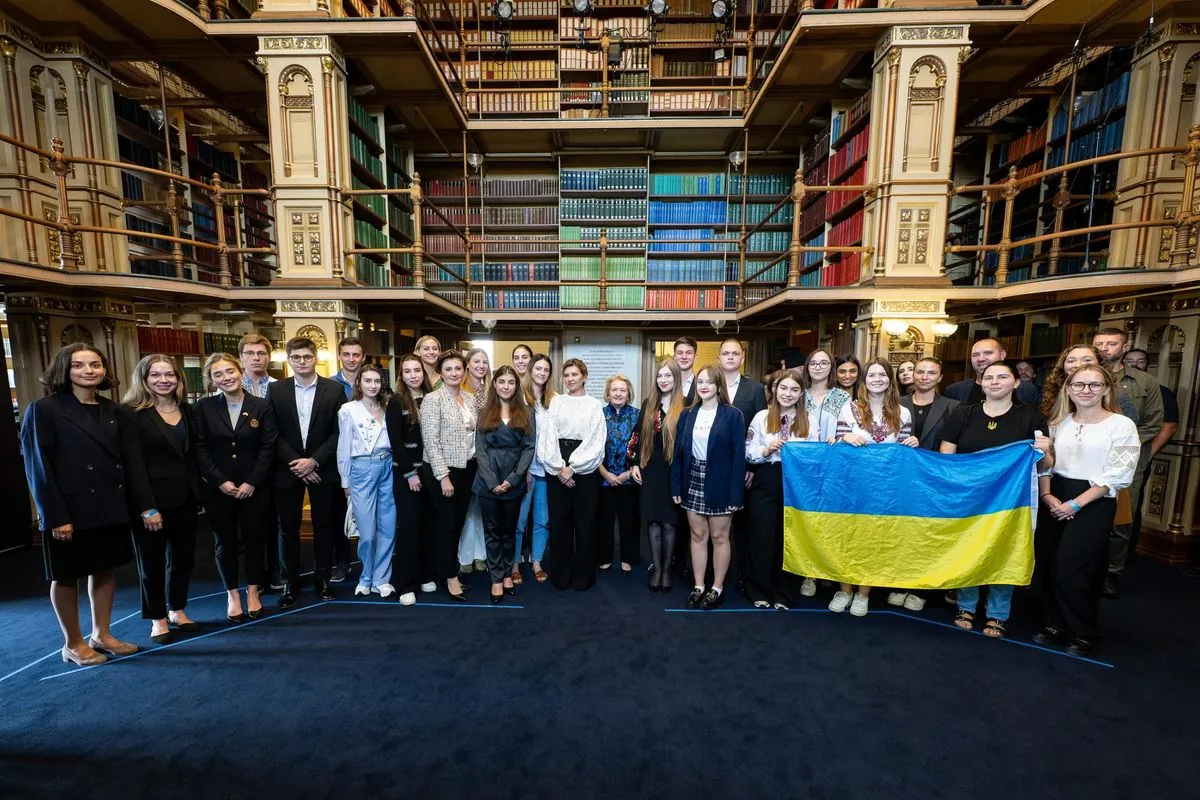While most college students in the United States anticipate summer breaks filled with familiar comforts, those displaced by conflict face a starkly different reality. The experiences of these students, who number in the tens of thousands, paint a poignant picture of resilience amidst ongoing global crises.
Marta Mysiahina, a sophomore at Georgetown University, embodies this struggle. Hailing from Kharkiv, Ukraine's second-largest city renowned for its academic institutions, Mysiahina has been unable to return home for over two years due to the Russian invasion. Her story is not unique; according to the Presidents' Alliance on Higher Education and Immigration, nearly 55,000 college students in the U.S. were displaced or had refugee status during the 2022-2023 academic year.
The emotional toll on these students is immense. Abdalrahim Abuwarda, a Fulbright Scholar from Gaza at the University of Wyoming, spent eight months of his master's program fearing for his family's safety amidst the Israel-Hamas conflict. Similarly, Salah El Sadi, another Gazan Fulbright recipient at the University of North Carolina at Greensboro, struggles to focus on his studies while separated from his family.
Ukrainian student Valerie Malykhina, soon to be a senior at Vassar College, has experienced displacement twice due to Russian aggression. This summer, instead of returning home, she worked at a health center in western Ukraine, providing care for war-injured civilians.
Afghan students face their own set of challenges. Asadullah Azimi, a Georgetown student who left Afghanistan in 2019, finds himself unable to visit his parents in Finland due to visa restrictions. Another Afghan student at Arizona State University, speaking anonymously, expressed the emotional burden of maintaining a positive facade for her family while grappling with homesickness and trauma.
The legal context for these students varies widely. Some Afghan students, classified as humanitarian parolees, receive comprehensive refugee services. However, others, like Gazan students on temporary visas, face uncertain futures with limited support options.
Despite these hardships, many displaced students view U.S. education as a lifeline. Diing Manyang, a South Sudanese refugee who graduated from George Washington University in 2018, now works to help others from Kenya's Kakuma Refugee Camp access international education opportunities.
As U.S. campuses reopen, these students' stories serve as a stark reminder of the far-reaching impact of global conflicts on education and personal aspirations. Their resilience in the face of uncertainty and loss is a testament to the human spirit and the transformative power of education.
"Returning home would be nice, but you cannot predict whether your home will be there in a couple of years. What state will your home be in? Will you have people to return to who you call home?"
This poignant reflection encapsulates the complex emotions and uncertainties that displaced students grapple with as they pursue their education far from home, underscoring the long-lasting effects of conflict on personal identity and belonging.
